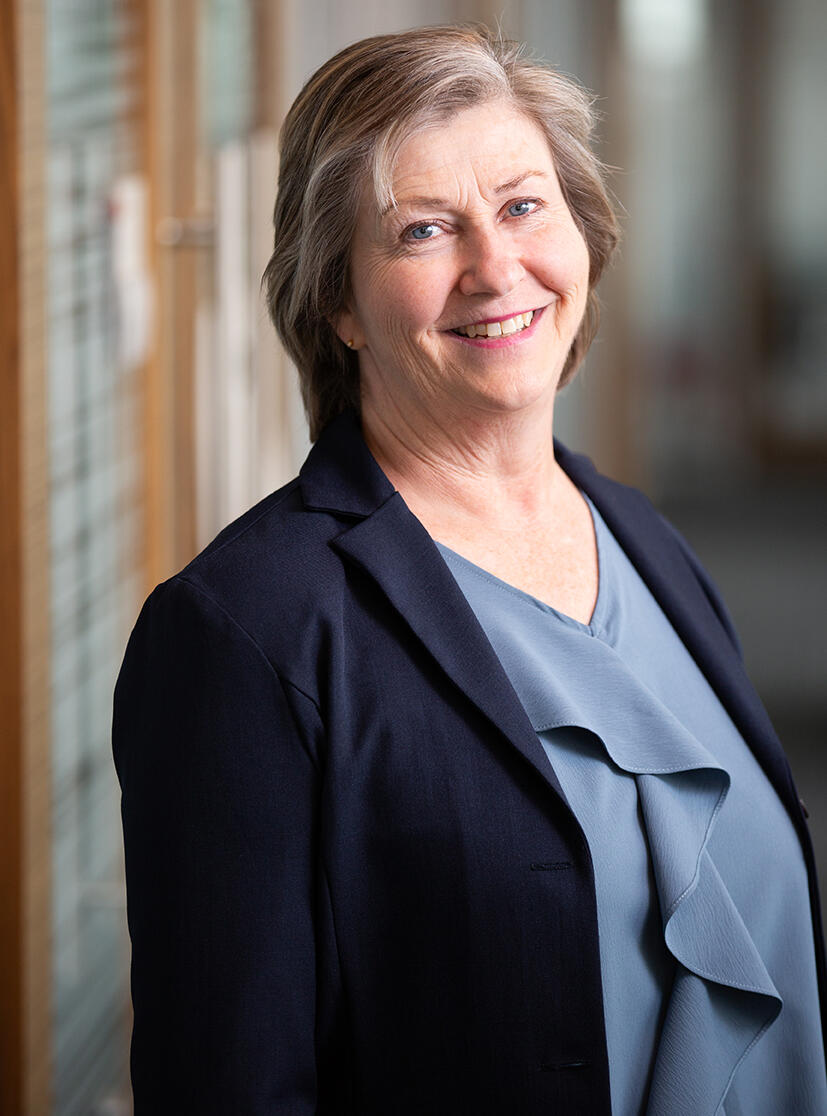[ad_1]
Mike Van Hee faced the chaos of COVID-19 on several fronts when the pandemic effectively shut the university down — along with the entire city and much of the world — in March 2020. As vice-president (services) at the University of Calgary, and overseeing information technologies (IT), human resources, environment, health and safety, facilities, and campus security/emergency management, Van Hee and his teams quickly mobilized to keep UCalgary up and running.
While the scenario was not one Van Hee would ever wish to revisit, it did open his eyes to what UCalgary was capable of when circumstances forced it to shed certain cumbersome institutional systems and processes long in place, eliminating overly complicated hurdles when emergency action was required.
But these same institutional hurdles also come into play in moments when it’s business as usual, says Van Hee, and that’s an issue UCalgary’s 2023-30 strategic plan, Ahead of Tomorrow, has pledged to resolve.

Mike Van Hee
Riley Brandt
Transforming services and supports
Strategy 4 of the plan is focused on making UCalgary processes “clearer, simpler and better than any other university” by transforming our services, supports and internal systems so that they’re more “nimble, lightweight and efficient.”
“[UCalgary] is a big, complex place,” says Van Hee. “We’ve grown quite quickly over the years and along the way we’ve built in a lot of processes that served a purpose but may now be more cumbersome than they need to be. We’ve been looking at the various ways in which we provide services to students, faculty and staff and we can see that they can be complicated and confusing.”
A key objective of Ahead of Tomorrow is to streamline UCalgary’s processes wherever possible. “This goal is to minimize hurdles and increase student, faculty and staff satisfaction,” says Van Hee. “We will apply some leading practices for process improvement to streamline our core processes, and also are examining ways to enhance customer service from our central functions at UCalgary.
“We all know that UCalgary targets the highest level of teaching, learning and research, and delivering services that depend on having great people, access to the technology we need to do the work, quality physical spaces and efficient internal operations. Those are some of the areas that my teams focus on.”
Van Hee cites human resources as an example by which smoother processes enhance teaching, learning and research. “Human resources support the hiring process and if that’s not efficient and effective we might not attract the very best people,” he says.
IT is also of crucial importance. “Our jobs have become increasingly reliant on technology,” says Van Hee. “Our IT support needs to be highly accessible when people need help, either to implement new technology or to assist with using the technology we currently have.”
The pandemic, he says, was the ultimate test for IT.
“Everything was shut down very suddenly and we had no choice but to get up and running online, literally over a weekend,” Van Hee recalls. “We had to do something in a few days that would normally take a few months. We showed that we have innovative, solution-oriented people at UCalgary. When we had to throw out the usual playbook and figure things out quickly, we proved we can do that very well.
“Obviously, we wouldn’t want to work this way all the time. But it’s worth reflecting: ‘How did we pull that off? How can we be nimbler like that on a regular basis when it’s not a crisis?’”

Ellen Perrault
Riley Brandt
Removing unnecessary barriers
Many of UCalgary’s processes, policies and procedures need an overhaul, says Dr. Ellen Perrault, dean of the Faculty of Social Work, whose areas of expertise include teaching and learning, as well as human service organizations and systems.
“I’ve heard staff and faculty members talk about having to help their children register for courses in our system,” says Perrault, BSW’93, MSW’95, PhD’09. “As employees, they were familiar with our system, but they often struggled with the complexities of it, too. So, if they struggle, think about somebody who is the first in their family to attend university. Imagine what it might be like for them to apply and register.
“Or if we’re asking for transcripts from superb international students whose institutions don’t give digital transcripts, that student needs to obtain a physical transcript before they can be admitted. There are unnecessary barriers in place.”
But Perrault believes Strategy 4 is about more than creating user-friendly processes. “This is an opportunity for UCalgary to transform its culture so that we can be more accessible and engaging to our entire community,” she says.
“Whether it’s skilled and talented newcomers, first-generation students, racialized students, LGBTQ2S+ students, or outstanding students with disabilities, it’s about making sure they have the same opportunities as more-privileged students. We can examine and then reduce any unnecessary barriers.”
Perrault envisions the creation of policies and procedures that facilitate more inclusivity, as well as awareness of who we serve. “Let’s say an instructor adds an exam question about the dimensions of a hockey puck; we need to consider the possibility that some students in our Canadian culture may not be familiar with hockey” she says. “We must examine these blind spots in our teaching and community relationships so UCalgary doesn’t feel so closed-off to some.”
The greatest key to transforming UCalgary culture will be its willingness to listen, says Perrault. “We need to look at our systems in an open-hearted and humble way,” she says.
Examine how we can serve with respectful, reciprocal collaboration. How can we reduce the transactional nature of our policies and procedures? This plan can help us transform and operate with excellence as more of a collective.
“I would urge us to listen to our community. To really listen and find out what they need from us. Because the truth is, we don’t always know.”
[ad_2]
Source link
